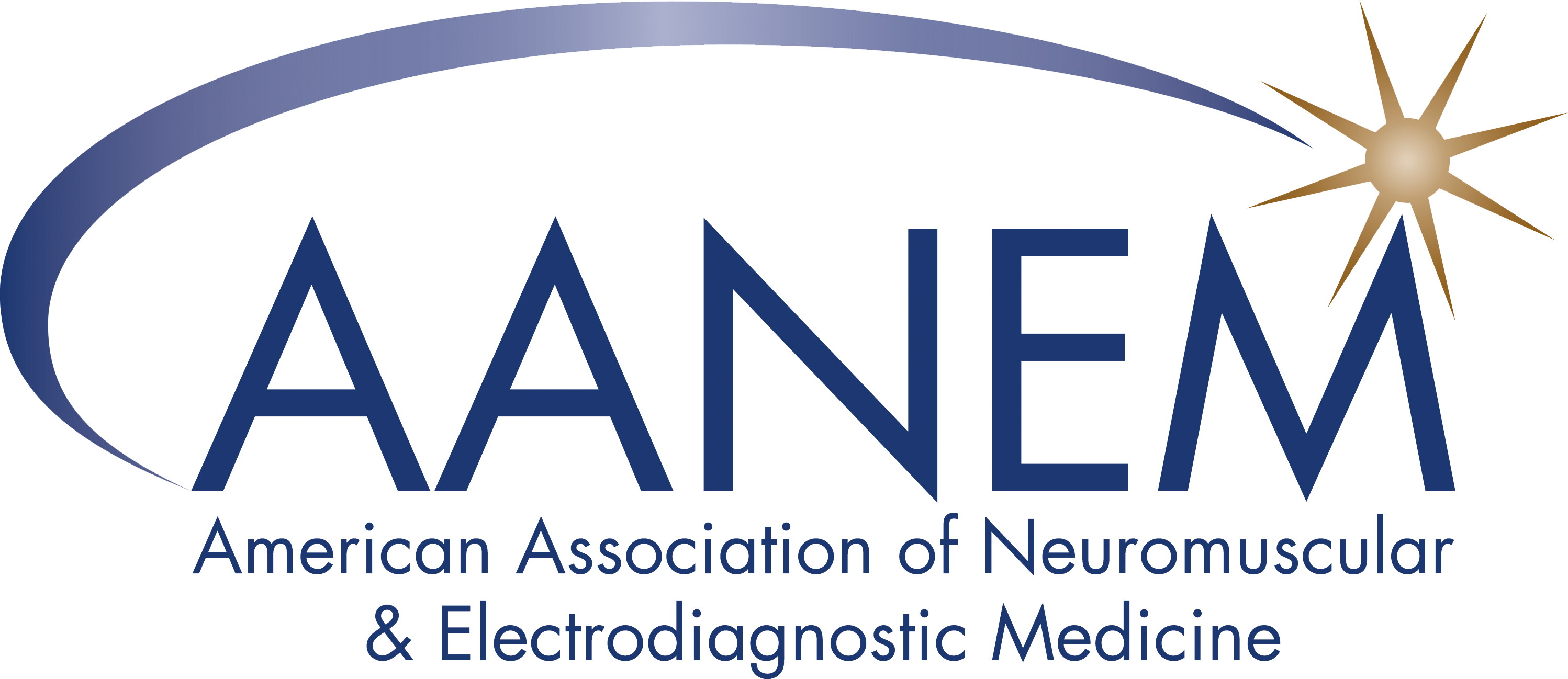Press and Media
View the latest AANEM Achievement Award winners, the American Neuromuscular Foundation (ANF) Abstract Award winners, and the latest AANEM news articles on News Express.
Frequently Asked Questions
Q: When will be content of abstracts be viewable, as opposed to just the titles?
A: The abstract content will be available at the annual meeting during the Poster Hall hours. We do not provide abstract presenter information or slides ahead of time. All available information can be found in the AANEM Abstract Guide online when it becomes available.
Q: How do I reach out to abstract or session presenters for an interview?
A: We do not offer member contact information. To connect with abstract or session presenters, review the AANEM Annual Meeting Program when available. Find the topics of interest and connect with the presenter after their lecture or during their abstract poster session time. Currently there is no interview option for virtual attendees.
Q: When can I share information?
A: The embargo on the abstracts themselves is lifted when they have been published in Muscle & Nerve and online in the AANEM Abstract Guide. However, the additional information beyond what is in the abstract itself is still embargoed.
AANEM requires information that goes beyond that which is contained within the abstract, e.g., the release of data not included in the abstract, discussion of the abstract done as part of a scientific presentation, etc. to be embargoed until the start of the annual meeting. Please see the Abstract Embargo Policy.
Q: Will the Abstract Award Reception feature the best posters?
A: The Abstract Award Reception is a social hour in honor of the abstract award winners where all authors, including award winners, will be available to discuss research.
Q: Original research is ONLY presented as posters, correct?
A: Yes - the research is presented in the Poster Hall via abstract posters.
Trainee Talk: A Brief Introduction to Neuroanatomy, the Neuromuscular Physical Exam, Electromyography, and Nerve Conduction Study Basics
Submitted by: Hunter Soleymani
Whether you are a medical student preparing for a neuromuscular (NM) medicine elective or an early resident starting on your NM training journey, it can be intimidating and stressful to figure out where to begin. There is a large amount of knowledge required to be a seasoned NM physician, but there are a few foundational knowledge domains and skills that can kickstart your learning and set you on the right path. By sharpening your neuroanatomy knowledge, physical exam skills, and learning the basics of electromyography (EMG) and nerve conduction studies (NCS), you will be well prepared to begin your rotations.
Neuroanatomy and Physical Exam
- High yield overview of upper extremity neuroanatomy and motor/reflex exam
- High yield overview of lower extremity neuroanatomy and motor/reflex exam
- Overview of sensory testing
Other foundational exam videos
EMG/NCS Introduction/Basics
Once you have developed a strong grasp of the basics of neuroanatomy and the physical exam you will be able to further your diagnostic skills by learning how to perform and interpret EMG/NCS. These tests certainly have a steep initial learning curve and there is no substitute for hands-on practice. By taking the time to learn the basics you will be able to accelerate your learning once you start actually performing these tests. Below are a few helpful resources to get you started.
If you prefer not to watch the videos or want additional practice, there are PowerPoint slides on AANEM’s Training Program Partnership (TPP) trainee portal that also cover the basics of EMG/NCS studies. These slides also include brief audio clips demonstrating normal and abnormal EMG findings.
The slides are located in the TPP under: My Courses> TPP Resident & Fellow Materials-> Self Study Curriculum > Introduction-to-EMG-and-NCS.pptx If you follow the link to the TPP portal rather than clicking on this PowerPoint link you will be able to listen to the actual EMG clips for practice.
If your program is not part of the TPP, it's a great time to talk to your program director or coordinator about joining. Find more information here and share with your program today.
